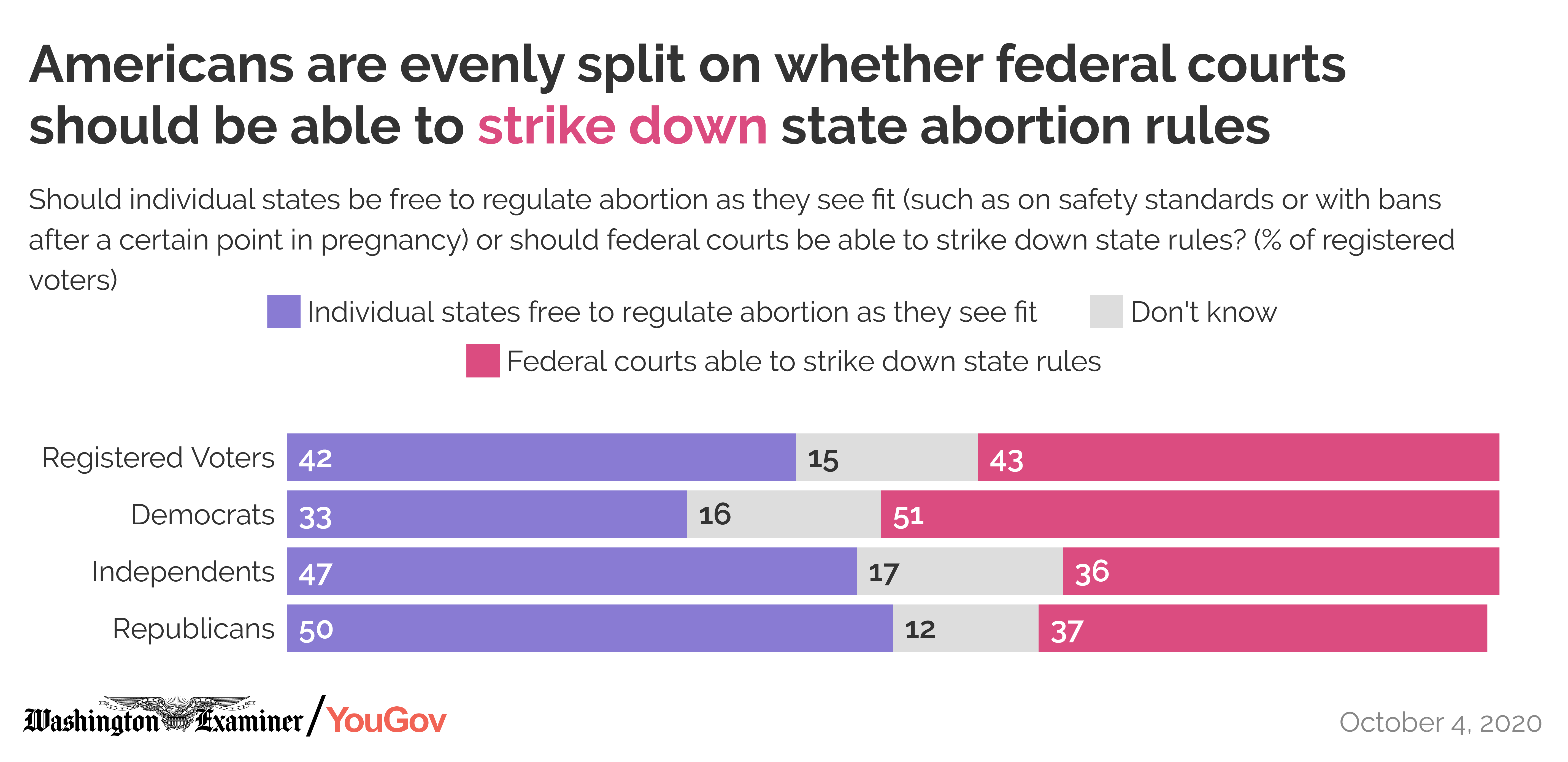Amy Coney Barrett could be the justice who overturns Roe v. Wade or dramatically dials back its far-reaching claims and effects. Everyone knows that’s what the battle over her nomination is about, even if some pretend otherwise.
ABC News isn’t pretending anything. On the morning of her confirmation hearing, the news organization rolled out a poll that seemed to say, “Don’t Mess with Roe.”
BREAKING: 62% of registered voters say the U.S. Supreme Court should uphold Roe v. Wade as the basis of abortion law in the United States, according to new @ABC News/Washington Post poll. https://t.co/9J4PFE7rjF
— ABC News (@ABC) October 12, 2020
The problem is that this poll, like many others that try to prove America supports Roe, doesn’t tell us what people really think about abortion law and jurisprudence — and thus whether people really would want Roe overturned.
Here’s ABC’s question: “As you may know, abortion law in the United States is based on the 1973 U.S. Supreme Court ruling known as Roe v. Wade. Do you think the Supreme Court should (uphold) Roe v. Wade or (overturn) it?”
The poll question is fundamentally flawed to the point of being almost worthless, which won’t stop Democrats and every news outlet from using it as “context” for today’s hearings.
There are a dozen ways to critique ABC’s question, but most of the problems are inevitable in a poll question, which has to be concise. For one thing, Roe has been modified a bit by subsequent rulings such as Planned Parenthood v. Casey and Gonzales v. Carhart. Two, there is no single body of abortion law in the United States, as there is some variation allowed from state to state.
The fundamental problem with ABC’s question, and the problem with almost all polls about Roe v. Wade, is that most people don’t understand what Roe did and what overturning it would do. If you asked about the effects of Roe, you’d find the ruling less popular, and if you asked about the effects of overturning Roe, you’d find overturning it more popular.
This is true about Roe’s substantive and governance effects. That is, Roe declared abortion a protected constitutional right, up until the moment before birth. Second, Roe took abortion out of the realm of democratic institutions and mostly out of the jurisdiction of the states.
America is evenly split on who should set most abortion law — that is, half of those with opinions oppose Roe’s decision that states may not meaningfully regulate abortion. Earlier this month, together with YouGov, the Washington Examiner polled 1,200 registered voters, asking, “Should individual states be free to regulate abortion as they see fit (such as on safety standards or with bans on abortion after a certain point of pregnancy) or should federal court be able to strike down state rules?”
The answers were evenly split, with 43% saying federal courts should set the rules, while 42% said states should. Notably, independents were far more likely to want states to be able to regulate abortion (47% to 36%).

On the substance, the American public is nowhere near as absolutist in defense of legal abortion as Roe is. Only 18%, according to a recent NPR/PBS/Marist poll, say “abortion should be available to a woman any time she wants one during her entire pregnancy,” which is basically the Roe position. Courts, citing Roe, have struck down bans on late-term abortions, but only 29% think abortions in the last trimester should be permitted (as long as you provide exceptions for cases of rape and incest).
So why would two-thirds seem to side with Roe in this ABC News poll? Probably because most people don’t understand how radical Roe was, or what overturning it would do. ABC, in this latest poll, made a point of not explaining Roe or what overturning it would do. Most people probably believe that abortion would instantly be outlawed in all cases across the country if Roe were overturned.
